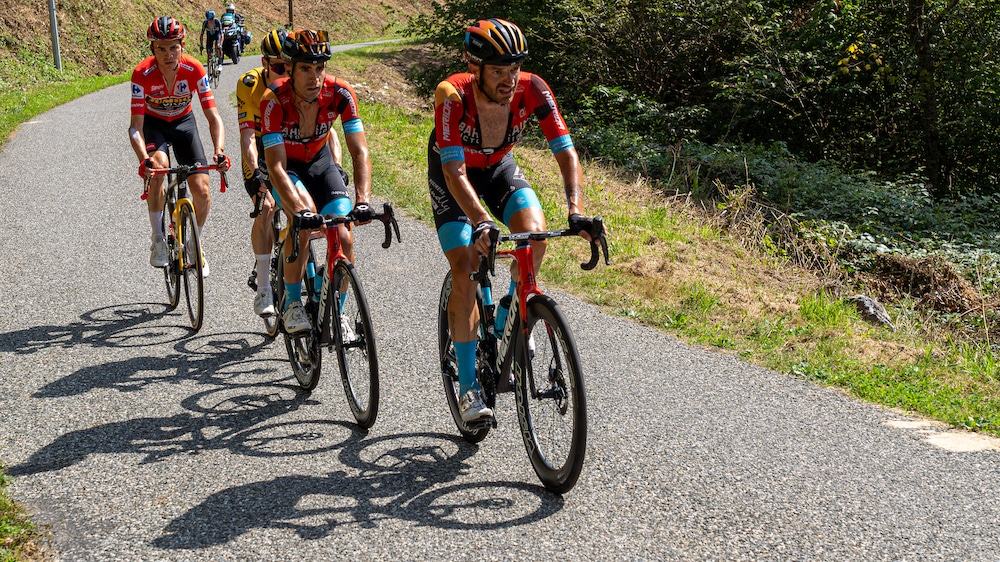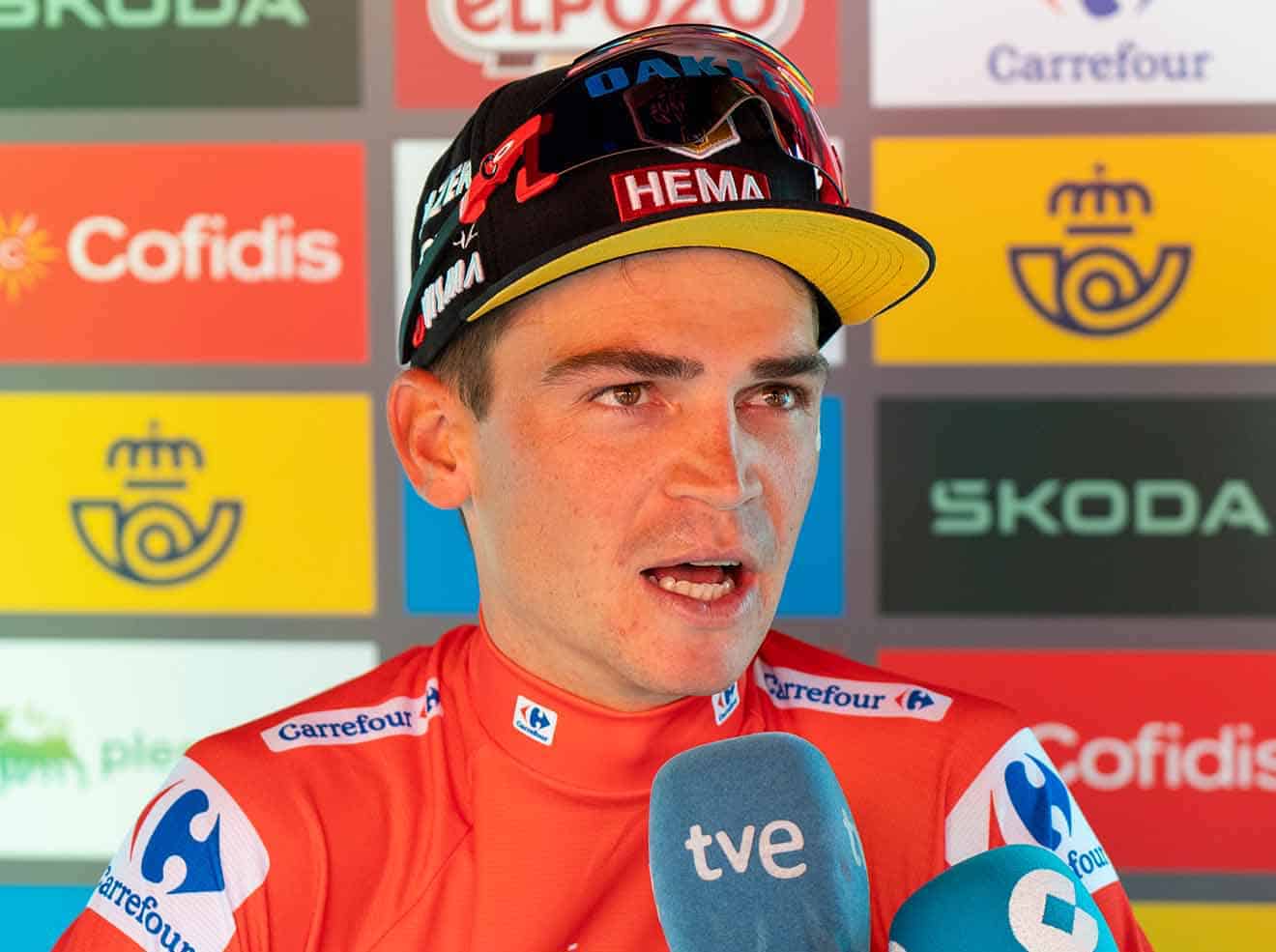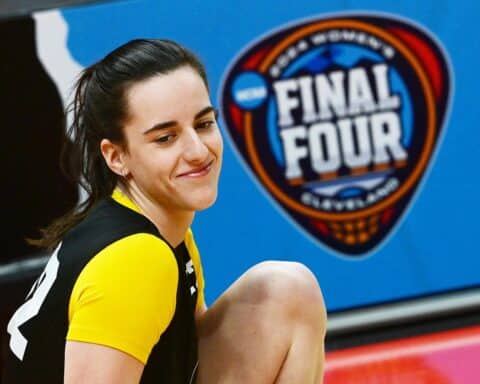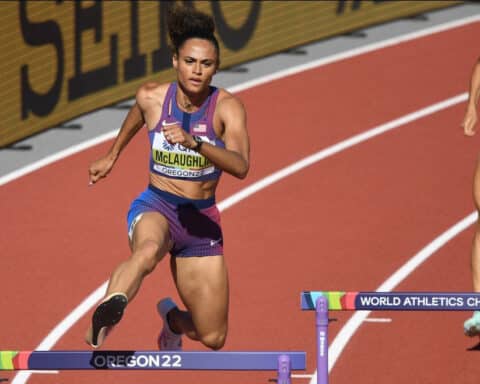I suspect that in the mind of the average American, the Tour de France is the only bike race in the world. What we think cyclists are doing the other 49 weeks of the year is anyone’s guess. The average person on the street would probably be hard-pressed to name a single one of the hundreds of professional bike races around the world (including in the U.S.) from January through October. But the Tour de France, contested over three weeks in July, is one of the three grand tours in Europe. The Giro d’Italia in May and Vuelta a España in August and September round out the biggest prizes in the European calendar. And these are complemented by other multi-stage races in many other Asian and European countries, as well as single-day races, sometimes reaching 150 miles, and taking as much as six hours to complete.
A Christian athlete
The Vuelta a España was especially noteworthy this year, as it was won by American Sepp Kuss, from Durango, Colorado. Kuss became only the second American to win the Vuelta in its 78-year history, after Chris Horner in 2014. Kuss’s victory is especially poignant both because it rewards a man of selfless devotion to his teammates and serves as a metaphor for a number of Christian virtues. Cycling is a team sport. In a stage race, teams designate their most hopeful athlete for a high overall position in the “general classification” as the “protected” rider. The other seven riders on the team take care of their G.C. contender to keep him safe and fresh. For example, the supporting riders, called “domestiques,” drop back to team cars to fetch food and hydration, ride in front of the protected rider to keep him out of the wind, chase down breakaways that threaten his position, or even give the G.C. rider a wheel or bike in the event of a flat or other mechanical emergency.
Over the past few years, Kuss has ridden in support of the two cycling superstars on his Netherlands-based team, Dane Jonas Vingegaard and Slovenian Primož Roglič. Kuss has been especially valuable in conducting his teammates over high mountain passes, the most challenging aspects of grand tour races. He guided Roglič to victory in this year’s Giro d’Italia and three consecutive Vueltas a España (2019, ’20 and ’21). And the American was Vingegaard’s chief lieutenant in the latter’s back-to-back Tour de France Victories in 2022 and ’23. With Kuss’s own Vuelta victory, his team won all three of the 2023 grand tours, a feat never before accomplished. What’s more, flanking Kuss on the Vuelta podium this year were Vingegaard and Roglič, taking second and third places respectively. This, also, is the first time that a single team has swept the podium in a grand tour. And the only cyclist of the three to be involved in all these accomplishments was Sepp Kuss. Vingegaard did not ride the Giro, and Roglič sat out the Tour.

Winning the race
Sports metaphors for Christian discipleship can be overplayed. But that does not mean they are not sometimes appropriate. St. Paul the Apostle used them, after all, including metaphors that resonate with endurance sports. “I have competed well; I have finished the race; I have kept the faith,” he wrote to his own faithful assistant, Timothy (2 Tim 4:7). And to the Corinthians he says, “Do you not know that the runners in the stadium all run in the race, but only one wins the prize? Run so as to win” (1 Cor 9:24). Of course, the metaphor points to something deeper and more profound than athletic accomplishments. But the discipline and training needed for each are common to both.
To be successful in cycling, like all endurance sports, it requires an astonishing amount of self-denial and single-minded devotion to the task. Days off or extra helpings of dessert (or any dessert) are not compatible with the discipline required to achieve the highest accomplishments. Similarly, the life of virtue requires constant diligence and concentrated commitment. Like athletes, we sometimes fail. But the mandate to “be perfect, just as [our] heavenly Father is perfect” (Mt 5:48) calls us to overcome our failure and set our face again to the task. Vice and virtue both occur through the repetition of practices that become habits; the former is easy, the latter difficult. The success of endurance athletes like Sepp Kuss remind us that the life of faith requires diligence, discipline and durability.
Moreover, in the case of a team endurance sport like road cycling, we learn lessons in humility and selfless service to others. Sepp Kuss did not enter this year’s Vuelta a España with the expectation of winning the general classification. Rather, he started the first of the 21 stages with the intention of supporting his two better-known superstar teammates in their quest for glory. But as the race played out, and contingencies occurred, the laurels of victory fell to the humble domestique, whose daily excellence demonstrated he was the stronger man. Kuss was rewarded for his psychological discipline and moral commitment to serving his teammates. These are the same characteristics that we Christians must practice to reach the glory of the crown that Christ has prepared for us. The work is hard, but the reward is heavenly.





